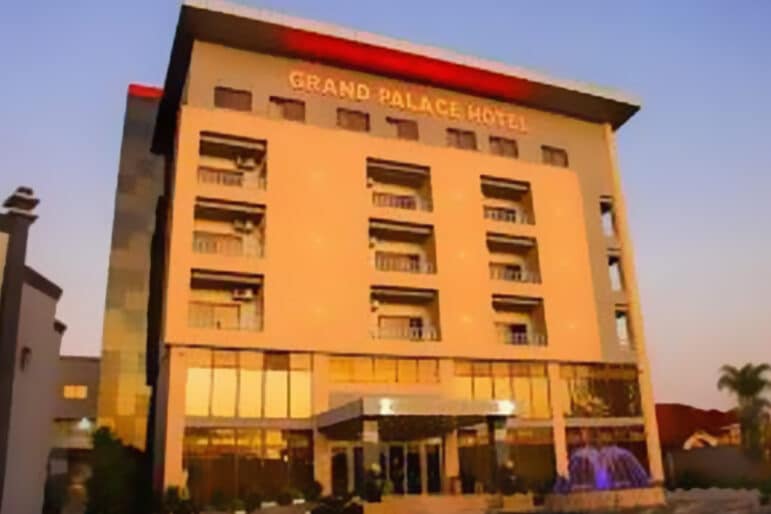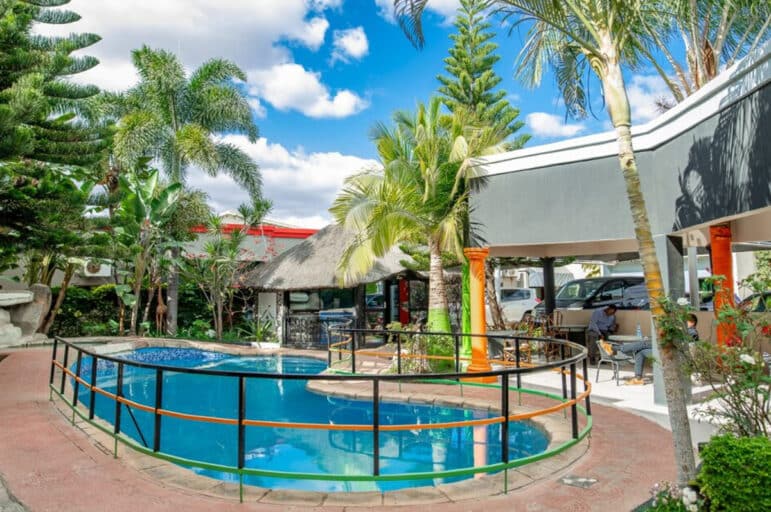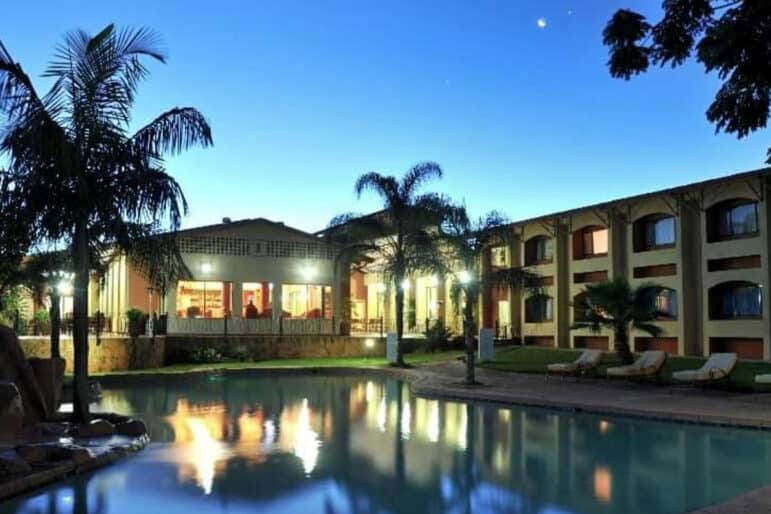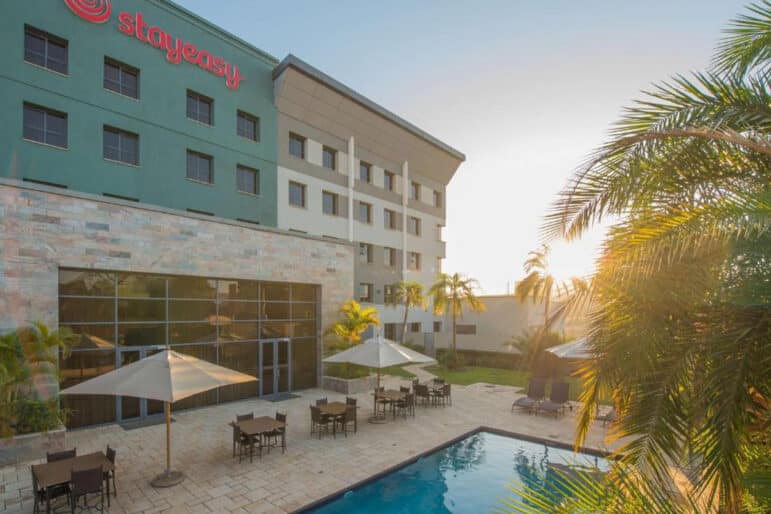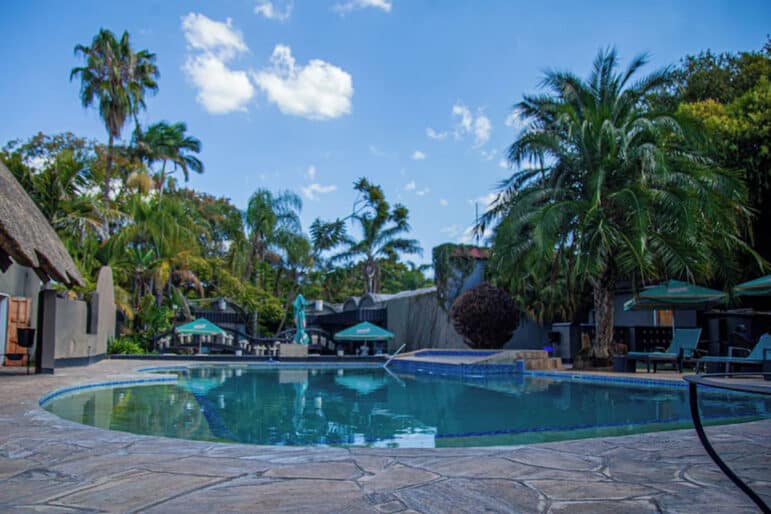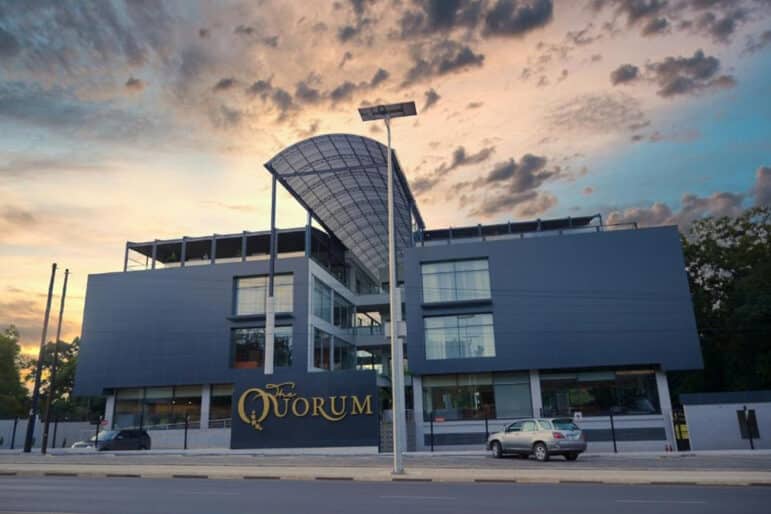Participation Timeline
- Early November 2025: Registration launch
- January 5, 2026: Travel support applications close
- Late January 2026: Travel support notifications released
- February 2026: Visa invitation letter launch
- Mid-February 2026: Connectivity support applications launch
- Mid-March 2026: Connectivity support applications close
- Late March 2026: Connectivity support notifications released
- Mid-April 2026: Platform opens
- May 5-8, 2026: RightsCon

Visa Information
If you’re planning to travel to Zambia, below is a step-by-step guide with information to help you determine whether you need a visa, how to apply for one, and the timeline for the visa process.
1. Determine if you need a visa
Zambia has recently expanded its visa-exempt list to include 167 countries. To find out whether you need a visa to enter Zambia, we recommend checking the official visa website of the Government of Zambia for the most accurate and up-to-date entry information. Please note that even if you qualify for visa-free entry, you must have a valid return or onward flight when entering the country.
Tip: You may also use a travel information website* as a reference tool to review visa and transit requirements. Enter the issuing country of your passport, your departure and connection points, and your travel dates, then select “see requirements.” Your trip summary will indicate whether you need a visa for your destination, a transit visa for connecting flights, health guidance, and other entry documentation requirements.
* RightsCon is not partnered or in affiliation with the website mentioned in this page. We recognize the implications of its name as a branding and we don’t endorse it being used outside of its context of indigenous Sherpa communities and clans.
2. I need a visa to Zambia
If you need a visa, you can apply for an e-Visa as Zambia allows all nationals who require a visa to apply entirely online through their official portal. Depending on the passport one holds, some nationals are also eligible to obtain a Visa-on-Arrival or apply for a visa through a Zambian Mission abroad.
However, we strongly recommend all participants to apply for an e-Visa,as we are working in partnership with Zambia’s Ministry of Technology and Science(MoTS) and Bloggers of Zambia, a local civil society organization,to facilitate this process for participants. Applying through this pathway allows our team to support you with the required documents and guidance through the application process.
3. Fill out our form to request supporting documents for your e-Visa application
Our team will provide you with some of the required documents for your e-Visa application. To submit a request, complete the RightsCon visa support and documentation request form.
In the form, you’ll be asked to provide personal, travel, and passport information, as well as your unique RightsCon ticket number. This number can be found in your confirmation email. You need to be registered before filling out the form. If you don’t have a RightsCon ticket yet, register now.
Be sure to fill out the form with complete and accurate information.
Within 3-5 working days, you’ll receive the following documents via email:
- An invitation letter from Zambia’s Ministry of Technology and Science
- An invitation letter from Access Now and Bloggers of Zambia
- A Certificate of Incorporation from Bloggers of Zambia
Please note that to process your application, RightsCon needs to share the information you provide in the form with Zambia’s Ministry of Technology and Science.
We strongly suggest submitting this form as soon as possible. The deadline to submit the form is April 3, 23:59 Pacific Standard Time.
4. Apply for the e-Visa online
Once you receive the supporting documents from our team, you can apply directly through the Zambian e-Services application portal.
As Zambia offers different types of visas, in the application form under Purpose of Visit, select the option of Business Visa, as this visa is intended for individuals entering the country to attend conferences and meetings. Along with the three documents our team will provide, you are also required to provide the following:
- Passport size photo:
Be sure to upload a clear, full color picture of you with a white background, taken less than 6 months ago, in jpg/jpeg format. Do not upload the photo from your passport.
- Certified copy of your passport:
A certified copy of a passport is a photocopy of the original document that has been verified, signed, and stamped by an authorized official such as a notary public, lawyer, or embassy official. If you are unable to certify the copy, you can upload it without certification. Make sure that your passport is valid for at least 6 months from the date you plan to enter Zambia and contains at least 2-3 blank pages.
- Cover letter on your organization’s letterhead addressed to the Director General of Immigration:
If you work independently and are not associated with an organization, the cover letter does not need to be on official letterhead.
Additional information:
- The eVisa processing fee is USD $50
- Processing time for the e-Visa is usually 5–10 business days, but in some cases it may take up to a month, so we highly recommend that you apply for the e-Visa as soon as you receive the documents.
- Approved eVisas are valid for 90 days and you must enter Zambia within this period.
- Upon entry to Zambia, your Business visa will allow for you to stay up to 30 days, unless otherwise indicated by the border official.
When should you apply for a visa?
Don’t apply too late:
Visas are usually processed within 5-10 working days, but it may take as long as a month in some cases. To be safe, start your process as soon as possible and no later than April 3, 2026.
If you have any questions or concerns regarding visas to Zambia, please do not hesitate to contact us at [email protected]. For general questions about your participation, reach out to us at [email protected].

Venue
RightsCon 2026 will take place at the Mulungushi International Conference Centre (MICC), located in the Olympia Park neighborhood in Lusaka, a central area surrounded by major international hotels, restaurants, and government buildings.
The MICC features modern infrastructure and technology, and newly renovated architecture. Its versatile layout offers more than 50 rooms – from auditoriums, banquet halls, and conference rooms – perfectly suited for the variety of formats and sessions that make up the RightsCon program.
The venue also includes ample parking for visitors and lush green areas, showcasing a glimpse of Zambia’s exuberant flora and fauna.

Arriving in Lusaka
Located in the country’s capital, Lusaka, the Kenneth Kaunda International Airport (LUN) is Zambia’s largest airport and the main gateway for international arrivals. The airport is a 20-30 minutes drive from the city center and the RightsCon 2026 venue.
Flights:
Recently renovated, the airport provides direct flights through key regional and international airlines, including Kenya Airways, Ethiopia Airlines, South African Airways, Qatar Airways, Emirates, ProFlight and more.
ATM:
An ATM to withdraw local currency is available when exiting the terminal.
Welcome Desk:
Look for our booth right outside of the airport. A RightsCon representative will be there to welcome you to Lusaka and provide you with the information you need to get your journey started. We’re also working with the airport authority to secure space before immigration, if possible.
Internet connection:
The Kenneth Kaunda International Airport offers free Wi-fi for all visitors. After passing through the arrivals gate, you’ll find an MTN stand outside where you can purchase a SIM card for your stay in Zambia. Please note that to purchase a SIM card, you’ll need to present your passport, and your photo will be taken and attached to your registration as part of Zambia’s SIM card regulations.
While eSIMs are available in Zambia, they are generally less reliable for maintaining a stable connection than physical SIM cards.

Accommodations
Tourism is one of the main drivers of Zambia’s economy, alongside their agriculture, manufacturing, and mining industries. In recent years, the country’s focus on growing its tourism sector has led to a rapid expansion of hotels and guest accommodations in Lusaka, including well-known international chains like Holiday Inn and InterContinental, as well as reputable local and regional brands, such as Grand Palace Hotel and the Quorum.
The RightsCon venue, the MICC, is centrally located in Lusaka, surrounded by a variety of accommodation options within walking distance or a short drive away.
Below you can find a selection of room blocks from selected hotels near the venue offering discounted rates for RightsCon participants. Over the coming weeks, our team will share more options from nearby accommodation spaces, including booking links and discount codes. If you have the means, we recommend booking your accommodation as early as possible to ensure room availability during the summit dates.
Please note that to book the rooms listed below, you must contact the hotel directly by email and include the booking code provided.
If you have any questions about the accommodations listed below, or about other accommodation options in Lusaka, please reach out to us at [email protected] and our team will be happy to support you.
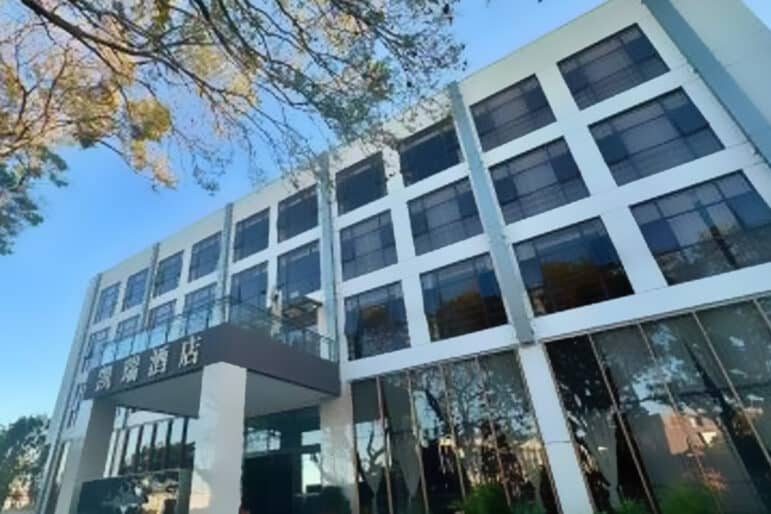
Carrey Hotel
How to book:
Click the email below to make a reservation and quote the promo code CarreyRightsCon26
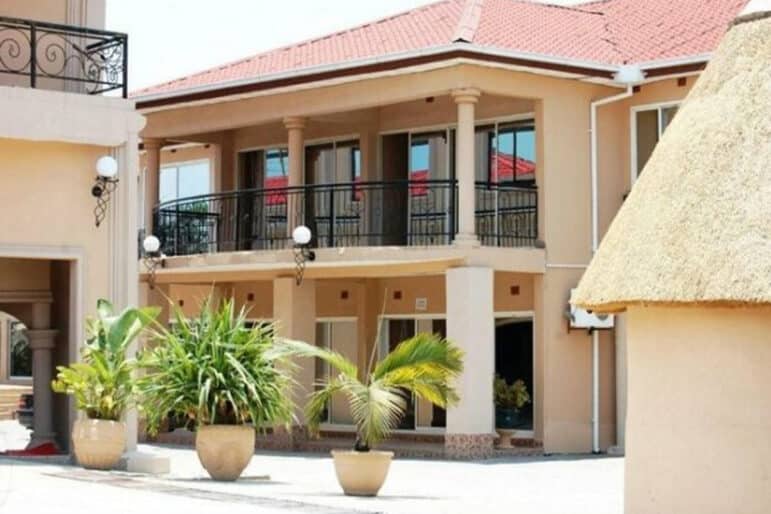
Cosmic Lodge
How to book:
Click the email below to make a reservation and quote the promo code CosmicRightsCon26
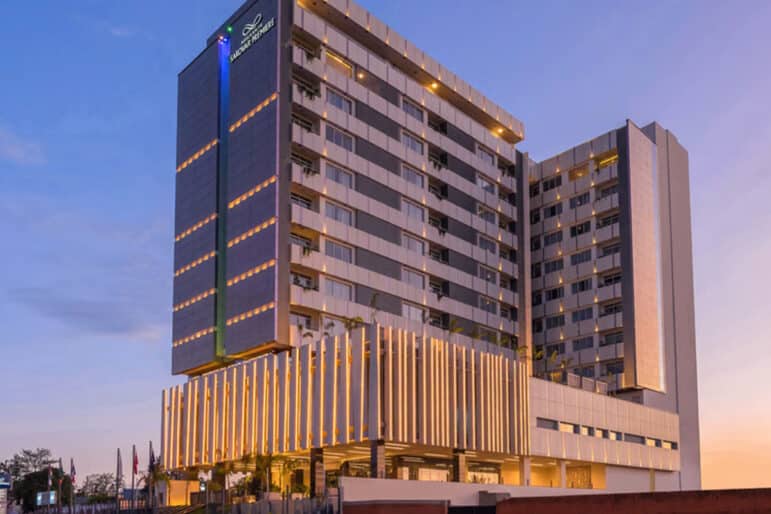
Neelkanth Sarovar Premiere
How to book:
Click the email below to make a reservation and quote the promo code RightsCon26
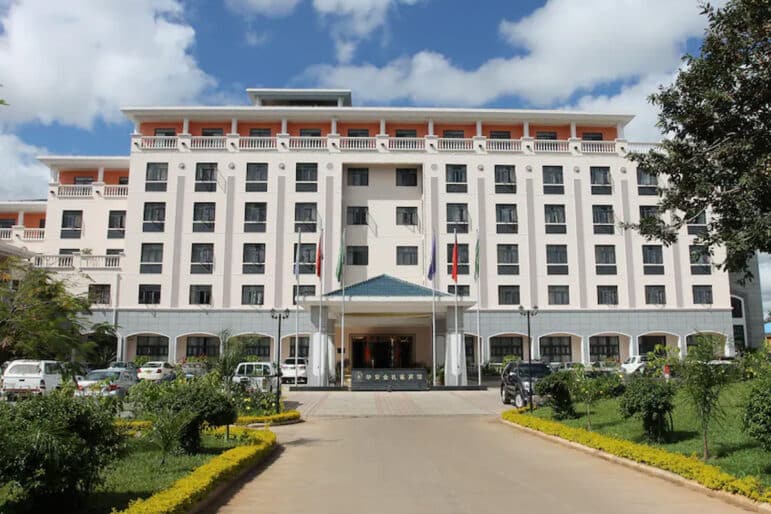
The Sogecoa Golden Peacock Hotel
How to book:
Click the email below to make a reservation and quote the promo code GPeacocockRightsCon26
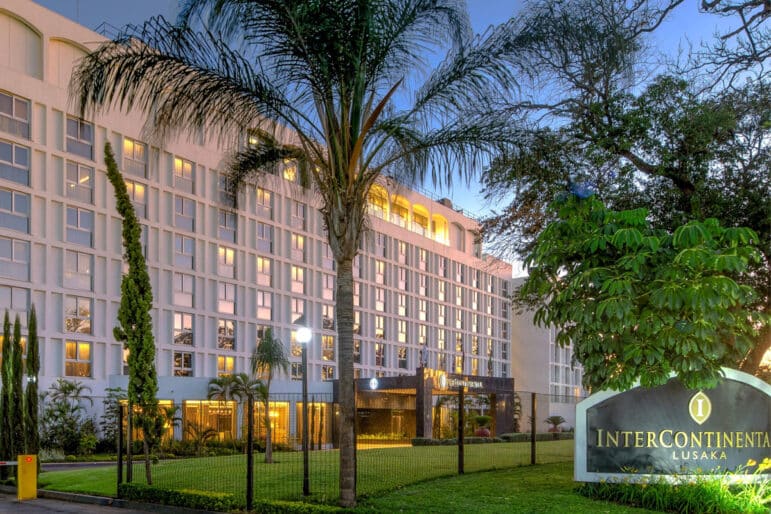
Intercontinental Lusaka
How to book:
Click the email below to make a reservation and quote the promo code RISCO5
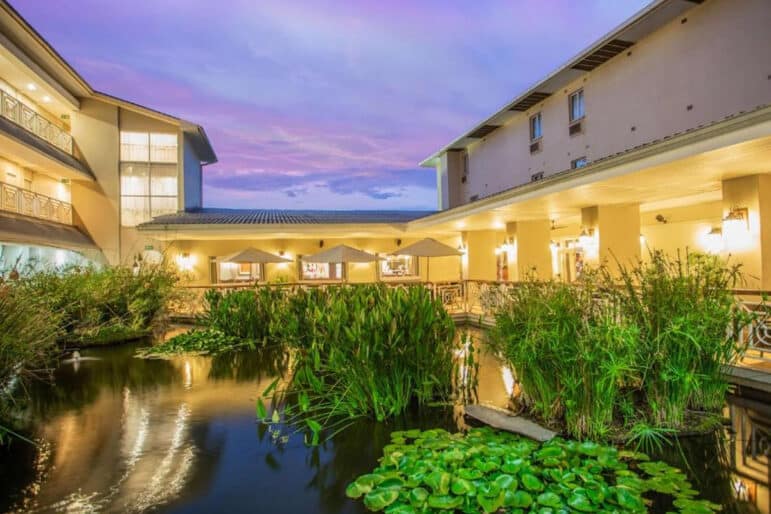
Southern Sun Lusaka
How to book:
Click the email below to make a reservation and quote the promo code SSRightsCon26
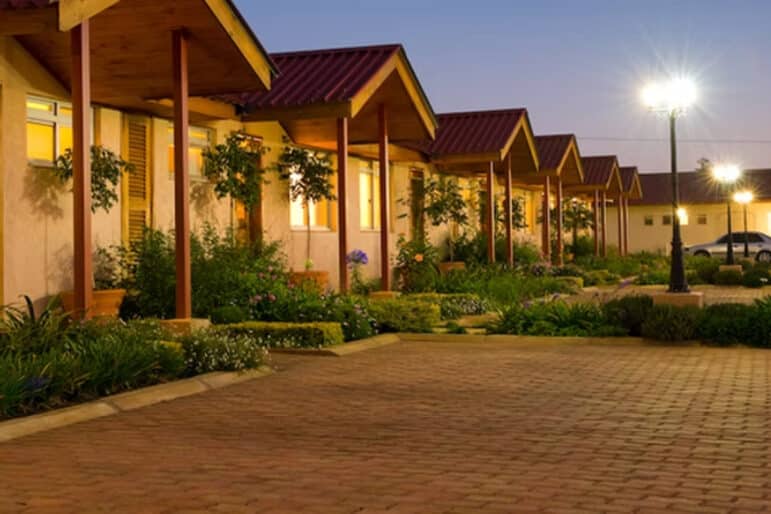
Shakespeare Court
How to book:
Click the button below to make a reservation and add “Rcon26” along with your name when booking
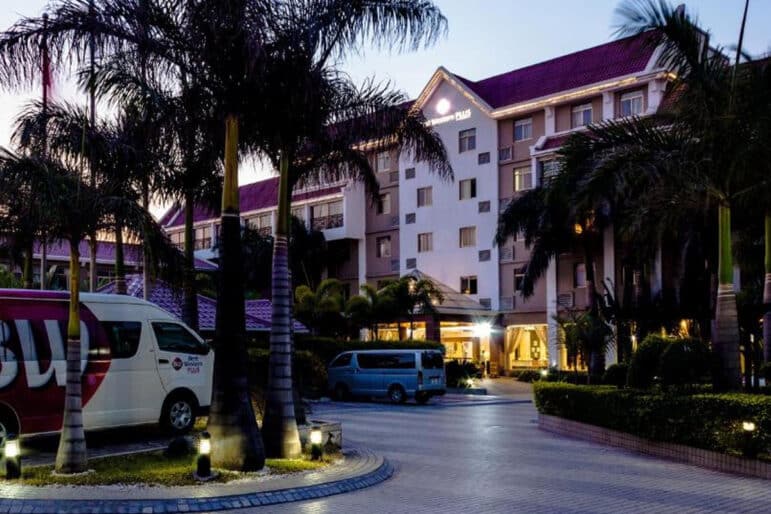
Best Western Plus
How to book:
Click the email below to make a reservation and use RightsCon26 as the subject line

Transportation
At the airport:
Taxis are the most common form of transport to and from the airport, however, note that most taxis in Lusaka only accept cash in the local currency, Zambian Kwacha. Car rental services are available at the airport through Avis and Europcar, and many hotels provide airport shuttle services.
To make travel easier, RightsCon will provide shuttles between the airport and key hotel hubs in the weekend prior to the summit as well as the first days of RightsCon 2026.
Accessibility support from the airport to the hotel and venue:
If you need accessibility assistance between the airport terminal and transport options to the hotel and venue, support is available. Our team can help you from the airport building to the welcome desk, and from the welcome desk to the shuttle or taxi service. Support may include help with luggage or mobility devices, guidance along accessible routes, visual or verbal way-finding, arranging wheelchair-accessible transport, or ensuring adapted seating when needed. Please let us know your accessibility needs in advance by emailing us at [email protected] so we can ensure a smooth arrival.
To the MICC:
While the MICC is within walking distance from neighboring hotels, our team will also provide daily shuttle services from key hotels and hubs in the city to the venue and back. We’ll share detailed shuttle routes and schedules closer to the summit.

Safety and security
RightsCon places participant safety, security, and wellbeing at the center of our planning and production of the summit. We chose Lusaka, Zambia after an extensive selection process and believe it to be a very safe and welcoming city and country to host RightsCon, but we know no country is without risk and take seriously our responsibility as convenors.
Every year, our Safety Working Group, an internal committee composed of our RightsCon, Security, and Code of Conduct teams, reviews our safety and security processes to ensure we understand the risks posed to the RightsCon community, both online and in person, and are positioned to respond effectively to issues should they arise. This includes conducting thorough risk assessments, mapping out potential scenarios, and developing response plans, support mechanisms, and guidance for participants. In addition, this year, we have formed and are currently developing an advisory committee of 3-5 people to ensure our safety planning and guidance reflects the local context and the diversity of experiences and identities of participants.
As with past editions, our Safety Working Group will prepare a comprehensive plan for the lead up to, week of, and post RightsCon. While our planning is ongoing and you can expect to hear more from us in the coming months, below is a high-level overview of the support mechanisms we will have:
- A support number for participants to contact if they face issues in transit, when arriving, or during the event;
- RightsCon representatives at the airport (either before and / or after security);
- Shuttles from the airport to the venue and nearby hotels, including accessibility support options;
- Local legal counsel onsite before, during, and after RightsCon in case incidents arise;
- Dedicated in-person and online psychosocial support for participants during the week of RightsCon;
- A wellness space at the venue for participants to relax and decompress;
- Our Safety Working Group and Code of Conduct teams onsite, ready to support and respond.
As our diverse community comes from different contexts and backgrounds, we recognize that each person’s risk profile and needs will be different. We also know that Zambia’s cultural and legal environment may present risks for some members of our global community, in particular those who identify as LGBTQ+. Before deciding to host RightsCon in Zambia, our team conducted legal and security assessments and consulted with organizations in Zambia, across the region, and from our broader community to better understand the potential impact and environment for LGBTQ+ participants, both from Zambia and abroad. These consultations and assessments have helped us gain a more nuanced understanding of the potential risks facing LGBTQ+ participants. We are committed to understanding risks, thoughtfully building plans to mitigate them, sharing clear guidance to inform participants, and facilitating an inclusive environment for everyone.
If you’re a member of the LGBTQ+ community planning to join us in Lusaka, please send us a note to [email protected]. Our team can connect with you directly and share more information about the context in Zambia and how to prepare for your participation.
As always, we welcome any participant to reach out to us if you have questions or concerns about your participation.

Community Support Fund
In order to facilitate the participation of underrepresented communities, RightsCon provides travel and connectivity support to a small number of civil society members who wish to attend RightsCon 2026. The fund is reserved for individuals facing financial barriers who would be unable to attend the summit without our support.
Applications for travel support are now closed. Decisions will be communicated to applicants at the end of January.
Applications for connectivity support for online participants will open in mid February.
Eligibility requirements and selection criteria
As our funding is limited, to be considered for the fund, you must meet all of the eligibility requirements below:
- Belong to an underrepresented group: you identify with or belong to a community traditionally excluded from convening spaces, including but not limited to: Black, Indigenous, and racialized individuals; transgender and gender non-conforming individuals; people with disabilities; informal workers such as migrant workers and sex workers; and individuals directly affected by conflict and crisis.
- Belong to a civil society organization or work within the civil society sector: you are associated with a civil society organization, or work within the civil society sector in fields at the intersection of human rights and digital technologies. Examples of groups that fall in this category include but are not limited to: community-based organizations, NGOs, advocacy groups, labor unions, independent media organizations, and charitable organizations.
- Belong to a country in the Global Majority: you reside in, identify with, or represent an organization or community based in a country that is part of the Global Majority, in regions including, Africa, Asia Pacific, the Middle East, Latin America and the Caribbean, and Eastern Europe and Central Asia.
- Demonstrate financial need: you belong to a small civil society organization with limited funding, or work independently in a relevant field without institutional support. We will ask for information about specific financial barriers that might prevent you from participating at RightsCon without our support, as well as relevant details such as access to organizational support or challenges in obtaining funding from other sources.
Once the eligibility requirements above have been met, we will further evaluate applications considering each individual’s unique experience, background, and need, and prioritize applications that meet our selection criteria as follows:
- Program participation: while everyone is welcome to apply, we will prioritize applications from session organizers, Program Committee members, facilitators, and/or speakers accepted into the RightsCon program. If you are a participant not involved in the program, just make sure you work within the human rights and / or technology space, as we will ask to know about your contributions to the issues supported in the RightsCon program in the application form.
- Those who have not received funding from RightsCon in the past: to ensure a diversity of perspectives and opportunities to experience RightsCon, we will give priority to those that have not received funding from RightsCon in the past.
For individuals applying from the same organization, we are only able to fund one individual per organization. We encourage organizations to consider having only their junior staff apply, if they believe senior staff can secure funding from other sources.
Frequently Asked Questions
Check out our answers to frequently asked questions. If you are unable to find the information you are looking, get in touch with us at [email protected]
Where and when will RightsCon 2026 be held?
RightsCon 2026 will be held from May 5-8, 2026, in Lusaka, Zambia and online through the RightsCon Platform. The venue for in-person participation is the Mulungushi International Conference Centre (MICC).
When will the RightsCon platform open?
The RightsCon platform will open mid-April 2026.
Where and when will I be able to register for RightsCon?
Registration for RightsCon will launch in early November 2025 and participants will be able to register on the “Register” page of our website. Subscribe to the RightsCon Rundown for updates!
Do I need a visa to travel to Zambia?
To find out if you need a visa to Zambia, we recommend checking the official visa website of the Government of Zambia for the most accurate and up-to-date entry information. You can also consult a trusted travel website as a reference tool to review your visa and transit requirements. Simply enter the issuing country of your passport, where you’re traveling from (including if you have a connecting destination), your dates of travel, and click “see requirements”. Your trip summary will include whether or not you require a visa for your connecting flight or final destination, health guidance, and other documentation requirements. Please note that travel requirements are frequently updated, and we recommend that you check the latest entry requirements before your trip. (Note: You can navigate the page in different languages!).
How do I apply for a visa to Zambia?
Depending on the passport that you hold there are three different pathways for entry into Zambia. Please refer to the visa information section in our website for guidance on which pathways you are eligible for.
If you require a visa to Zambia, you can apply for an e-Visa as Zambia allows all nationals who require a visa to apply entirely online through their official portal. Once the e-Visa is approved, it is valid for 90 days and you must enter Zambia within this period. As such, we recommend starting your visa application between mid-February 2026 and early April 2026.
The RightsCon team is working closely with the Zambian government and our local partners to support participants when applying for a visa. We recommend that all participants that need a visa apply for an e-Visa, as this pathway allows our team to provide direct support and coordinate with the local authorities to help you have a smooth arrival in Lusaka.
How far in advance before my travel should I apply for a visa?
According to Zambia’s Department of immigration, visas are usually processed within 3-5 working days, though it may take as long as a few weeks in some cases. Once the e-Visa is issued, it is valid for 90 days and you must enter Zambia within this period.
Considering that RightsCon will take place between May 5-8, 2026, we recommend applying for your visa between mid-February 2026 and mid-April 2026.
What if my country is not listed in any of the visa options listed above?
Please reach out to us at [email protected], and we’ll be happy to help!
What steps will be taken to ensure accessibility at RightsCon 2026?
Our team is thinking intentionally about ways to ensure that every aspect of our summit – from the venue to programming and participation are accessible to as many participants as possible – whether they’re joining online or in-person.
As in past editions, we are working with our production team to ensure that both the interior and exterior of our venue space in Lusaka are physically accessible to participants. We are also working to optimize functionalities of our website and platform to improve the user experience. As our planning progresses, in the coming months, we will share more details about the specific steps we are taking to broaden access across RightsCon spaces. if you are interested in learning about what our approach has been in the past, check out our blog from 2023.
If you have an access request that you feel comfortable sharing with us, reach out to us at [email protected]. At the time of registration, when filling out our form, you will also have the space to indicate any access requests.
Should I book my flight to Zambia before my visa is approved?
When applying for a visa through the e-Service Platform, you may be asked to submit proof of booked flights and accommodation as part of the application process. To ensure peace of mind in case of any change in circumstances, you may choose to book refundable flight tickets or accommodation options.
Do I need travel insurance to travel to Zambia?
Travel insurance is not required by law but we strongly recommend participants are covered for medical emergencies while travelling to RightsCon. Medical facilities outside of Lusaka can also be quite limited, and having insurance to cover health issues, evacuation, or trip cancellations is always a good idea.
What type of funding assistance do you provide?
Our Community Support Fund provides financial support to a select number of civil society members who wish to attend RightsCon in-person or online, and is reserved for individuals facing financial barriers who would be unable to attend the summit without our support. The fund offers support for in-person participation in Lusaka including flights, hotel, stipend, among other travel related costs, as well as support for online participation including, connectivity, translation and other services.
Applications for travel support are now closed and connectivity support will be available in February 2026. For more details, check out the Community Support Fund section on this page.
Do I need travel insurance to travel to Zambia?
Travel insurance is not required by law but we strongly recommend participants are covered for medical emergencies while travelling to RightsCon. Medical facilities outside of Lusaka can also be quite limited, and having insurance to cover health issues, evacuation, or trip cancellations is always a good idea.
What language is used in Zambia?
English is Zambia’s official language and the main language of business and public spaces.
However, Zambia has a rich language ecosystem, with over 40 different indigenous languages in the population.
What currency is used in Zambia, and how can I make payments?
The official currency in Zambia is the Kwacha (ZMW). There are ATMs and cash changing facilities available at malls located near the venue.
In addition to cash, major credit cards such as Visa, Mastercard, American Express, and JCB are widely accepted in major stores, hotels, and restaurants.
Are any vaccinations required before coming to Zambia? What are the risks in terms of illness and food quality when traveling to Zambia?
We strongly recommend anyone traveling to Zambia consult with medical authorities, professionals, or with reliable sources such as the Africa CDC (Center of Disease Control and Prevention) or the international CDC (Center of Disease Control) about required and/or recommended vaccinations and medications.
While Zambia does not require vaccinations for travelers coming directly from most countries, the yellow fever vaccine is required if you are arriving from, have recently visited, or have transited through a country where yellow fever is endemic. Travelers who fall into this category must present a valid yellow fever vaccination certificate upon entry. In addition to this requirement, several other vaccines are strongly recommended (see resources shared above), especially for those planning to visit areas outside of Lusaka, the capital.
Malaria is present throughout the country, including around Lusaka. Travelers are often advised to take preventive medication; a healthcare provider can help determine the most suitable option. Malaria risk is present year-round and tends to be higher during and shortly after the rainy season (approximately November to April). Visitors in May may still encounter elevated mosquito activity in some areas.
Food and water safety is also important. Tap water is not considered safe to drink, so travelers should rely on purified or bottled water. Choosing clean and reputable places to eat can help reduce the risk of food- and water-borne illnesses.
Finally, travelers should consider their personal medical needs and ensure they have comprehensive travel insurance that covers medical care and unexpected health-related expenses.


